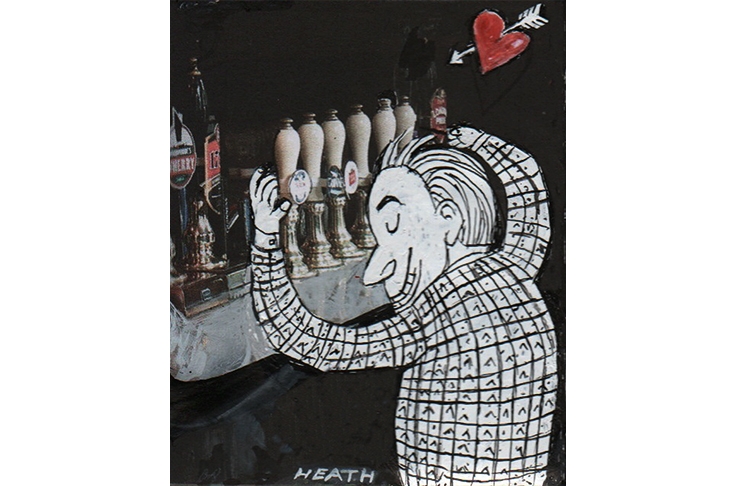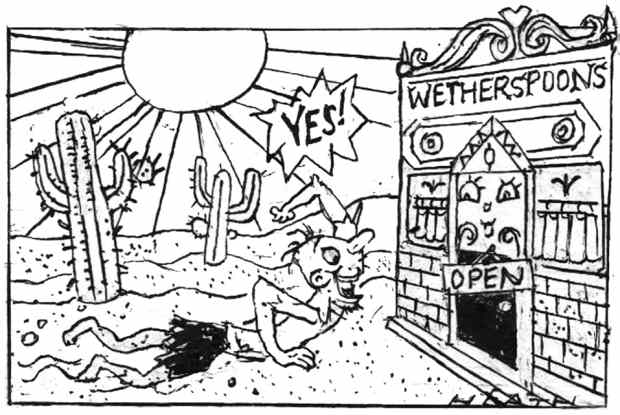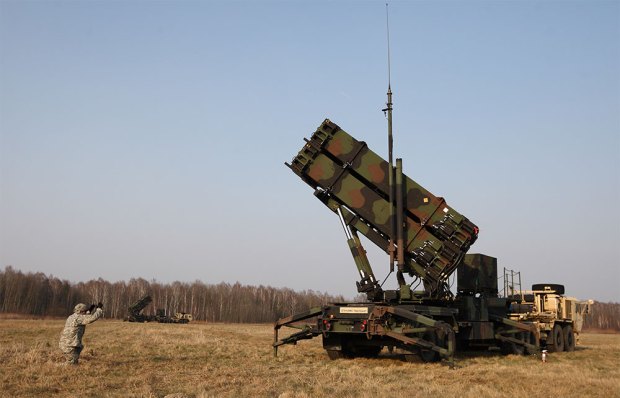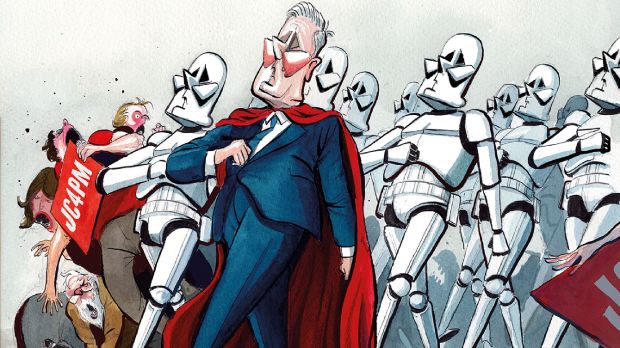Life’s great joys are usually its little ones, and one of the greatest is ordering at the bar in a pub. The custom — as opposed to sitting at a table and being served by a waiter — was one of the things I missed most during lockdown. The period when pubs reopened but could only provide table service was miserable.
A bar is more than just the place where drinks are dispensed. It’s a pub’s heart, the region where its name (short, of course, for ‘public house’) gets its meaning. You never know who you’re going to meet there. This is why pubs are always more exciting than members’ clubs.
It is also why London became the financial capital of Europe. Peter Rees, ex-chief planning officer of the Square Mile, says that the fact that you stand up to drink in an English pub ‘means you can be closer to people you don’t know than if you’re sitting at a table. The gossip you get in a French café is the gossip of your groups. The gossip you get in a London pub is the gossip of other people’s groups, if you’re careful and clever. That’s very valuable, because you can take it back to the office and put two and two together and make some money.’
This element of bringing disparate people together is illustrated in the countless TV shows that have used the bar as a plot device. From Bet Lynch and her drinkers in the Rovers Return, to Barbara Windsor serving Boris Johnson in the Queen Vic, no soap opera has ever succeeded without its pub. In The Sweeney, John Thaw seemed to take most of his phone calls in one London boozer or another, the landlord placing the phone on the bar so Regan could pick up the receiver. In the days before mobiles this was common practice. A couple of years ago, in a rural pub with no reception, I had to take a call on the venue’s landline. The barman handing over the phone was a genuinely nostalgic moment.
The bar’s pivotal role in British culture is there in movies too. The first two minutes of Nil By Mouth are Ray Winstone ordering a round, menace in every syllable (‘Ain’t you got no ice?’). In Get Carter, Michael Caine’s gangster shows how little he’s intimidated by being away from his London manor by clicking his fingers at the Newcastle barman who’s about to serve him a pint of bitter: ‘In a thin glass.’
One of the real delights of bar service is that it lets you savour your choice of drink. Perusing a list of names on a piece of paper just isn’t the same as surveying the logos on the beer pumps, the beautifully designed labels on the spirit bottles, whose coloured glass is backlit to maximum effect. Seeing your drink poured and then placed in front of you ratchets up your anticipation of that first mouthful no end.
When a bar is busy you might have to work hard to get served. The test of a truly great pub is that its staff always know which customer is next. In inferior establishments you need ‘bar presence’. Jasper Carrott once had a routine about his complete lack of this quality, which meant he could be standing there yelling, waving every banknote and credit card in his possession at the barman, and still not get noticed. An old trick is to respond to the server’s ‘Who’s next?’ by pointing at the person next to you. This display of generosity ensures you’ll be served after them, even though you might in fact have been fifth in the queue.
Another aspect of the packed bar is that there will usually be regulars stubbornly standing there to drink their pints, getting in the way of everyone else who’s still waiting. This might seem an act of selfishness, but is actually the inverse of Michael Caine in Get Carter: it’s the home drinker proclaiming ‘This is my patch’, rather than the away one implying ‘You want some?’
These are small details. Overall, the beauty of bar service is that it brings people together. Friends who haven’t met for a while. People who have never met before, and indeed may never meet again, but who, for an hour or two, will delight in each other’s company. This is the thing missed by those who ask why anyone would pay pub prices when you can get your booze so much cheaper in Tesco. Going to the pub isn’t simply, or even primarily, about drinking alcohol.
The same mistake was made by those who worship most devoutly at the altar of Covid restrictions. ‘What are you moaning about?’ they asked in the table–service period. ‘Why do you need to get served at the bar? You can still have the drink you want sitting down, can’t you?’ Yes, you can. But you can’t meet anyone you don’t already know. There are plenty of us who don’t think, or indeed drink, that way. And to them I say: see you at the bar.
Got something to add? Join the discussion and comment below.
Get 10 issues for just $10
Subscribe to The Spectator Australia today for the next 10 magazine issues, plus full online access, for just $10.
You might disagree with half of it, but you’ll enjoy reading all of it. Try your first month for free, then just $2 a week for the remainder of your first year.














Comments
Don't miss out
Join the conversation with other Spectator Australia readers. Subscribe to leave a comment.
SUBSCRIBEAlready a subscriber? Log in